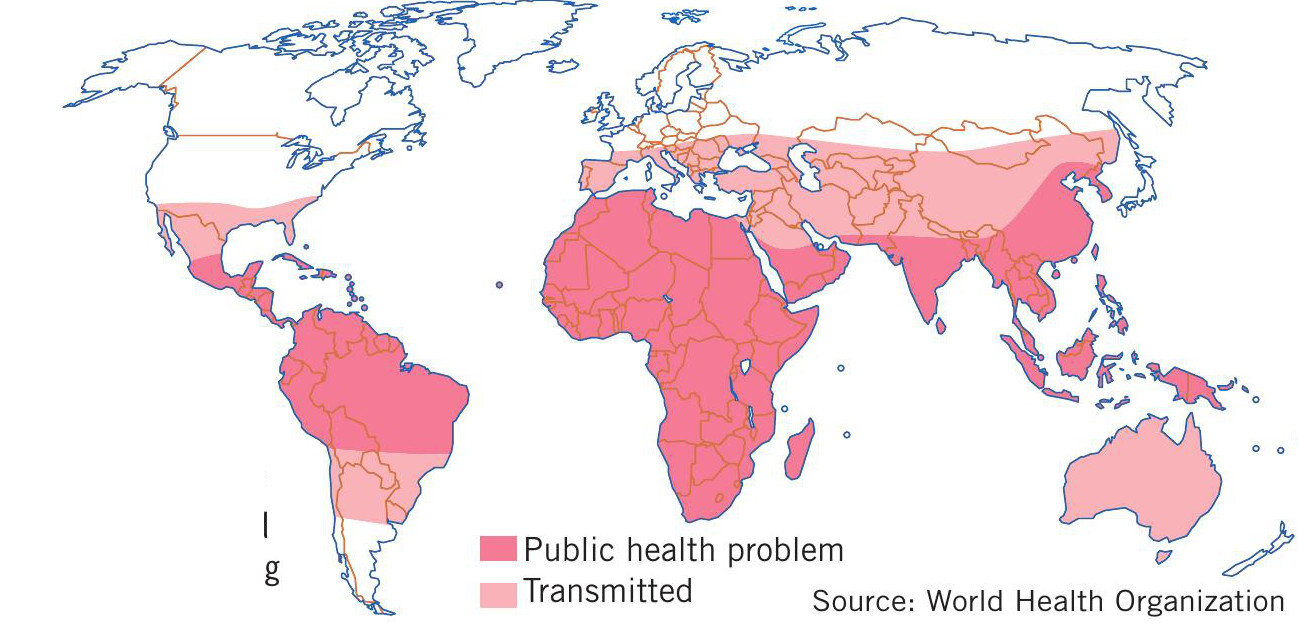
Gut infections by worms are a major public health problem, mainly in the developing world (see Figure 1). Roundworm, whipworm and hookworm infect over 2.5 × 109 people (see Table 1), as well as their pets and cattle.
Although worm infection can result in death, a major problem is the effect that it has on everyday lives. Infection can last a long time and can have a debilitating effect. Infection occurs mainly in children and can be traumatic — resulting in malnutrition, which affects the child’s physical growth. Figure 2 shows a scientist in Kenya holding roundworms Ascaris lumbricoides, which were removed from a child’s intestine. It has also been reported that infected children can be affected mentally, with a reduction in verbal fluency and memory.
Your organisation does not have access to this article.
Sign up today to give your students the edge they need to achieve their best grades with subject expertise
Subscribe




